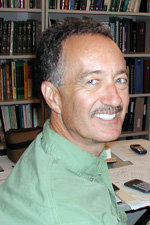
A version of this story was originally published in the Fall 2014 UW SRP eBulletin.
The University of Washington Superfund Research Program (UW SRP) will initiate 3 new research projects next year if our competing renewal is supported by the National Institute of Environmental Health Sciences (NIEHS). The overall focus of the program will continue to be investigating early biomarkers for neurotoxic compounds such as manganese, copper and pesticides. One proposed new study by Dr. Zhengui Xia will examine the impacts of cadmium on memory formation and function in adults and children. Cadmium is a heavy metal with an extended biological half-life in humans (staying in the body from ten to thirty years). Cadmium is common to Superfund hazardous waste sites and is a component of air pollution. Dr. Xia’s research findings on central nervous system injuries and motor impairment will dovetail with the program’s ongoing work related to the mechanisms that underlie neurodegeneration.
A second new project by Dr. Rebecca Neumann will advance current understanding of arsenic’s ‘mobility’ in natural aquatic systems, such as fresh water lakes. Arsenic is a neurotoxic and carcinogenetic pollutant. It is regionally important in the Pacific Northwest in part because of historic metal smelter operations that left a legacy of arsenic and other metals in urban areas. As with other metals such as mercury, arsenic can accumulate up the aquatic food-web and reach levels associated with health effects in humans.
The third new project expands our ongoing investigation into the health effects of manganese exposure. Dr. Brad Racette is currently conducting a study on environmental manganese exposure from mining operations in Meyerton, South Africa. The focus of the project will be on quantifying community exposure from the mining operations and investigating the health effects on the community.
These projects join continuing projects led by Dr. Evan Gallagher and Drs. Lucio Costa and Clem Furlong. Dr. Gallagher’s research uses field and laboratory studies to address chemical causes of behavioral defects in Pacific salmon stemming from loss of olfactory function that is critical to the specie's survival. Drs. Lucio Costa and Clem Furlong investigate the role of genetic variability in paraoxonase enzymes in metals and organophosphorus pesticides. Dr. Fred Farin continues to direct the UW SRP Functional Genomics and Bioinformatics Core, which enables UW SRP investigators to utilize a wide range of methodologies to identify markers of exposure to toxicants that are present in hazardous waste sites. Graduate trainees participate in all UW SRP Projects assisting in research as well as being involved in science translation opportunities and outreach activities with UW SRP partnering community organizations, governmental agencies and peer universities.

